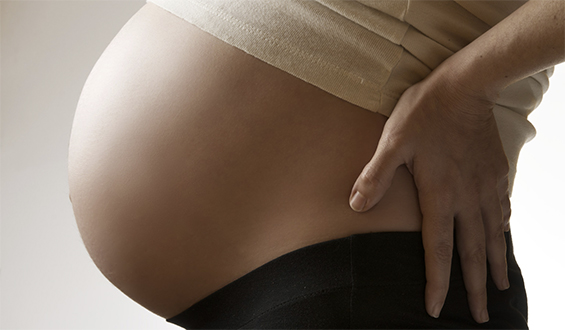
For years, women have been advised not to drink during their pregnancies, but the CDC has found that one in ten pregnant women in the US between the ages of 18 and 44 have admitted they had consumed alcohol in the past 30 days. Even more worrisome is the fact that one-third of the women surveyed were binge drinkers.
Paula Wolfson, reporting for WTOP Washington, DC, writes that the survey was taken via landline and cellphone and found that there is a higher level of drinking during pregnancy among college graduates and single women.
Drinking during pregnancy can result in miscarriage and birth defects.
“Even in 2015, we don’t know if there is any safe level of alcohol for pregnant women,” says Dr. Michael Fingerhood, an addictions specialist and associate professor of medicine at Johns Hopkins University.
The most serious effects, such as Fetal Alcohol Syndrome, occur with pregnant women who drink every day, but the possibility of risk is present even for those who drink an occasional weekend glass of wine.
“There can be more subtle structural brain abnormalities, there could be some neurodevelopmental disorders that may not even be apparent when the child is born,” Fingerhood says.
Kathy Mitchell, vice-president of the National Organization on Fetal Alcohol Syndrome and an addictions counselor, is driven to get the word out. Her motivation comes from the fact that she, herself, did not get the message. Mitchell had a family history of alcoholism and drank during her pregnancies on the weekends. The tragic outcome was that one daughter was born with a serious case of Fetal Alcohol Syndrome and two other babies died – one at birth and one at three months.
A surprising statistic was revealed by the survey – the rate of binge drinking is higher among pregnant women than it is in the general population. This could be because women who are addicted to alcohol are unable to stop drinking even in the face of possibly injuring their unborn children. Older pregnant women were found to be more likely to drink, with 18.6% reporting they had consumed at least one alcoholic drink in the past 30 days, according to Brian Anderson of Nature World Report.
Cheryl Tan, lead author of the study and an epidemiologist in CDC’s National Center on Birth Defects and Developmental Disabilities, says that drinking alcohol to excess is a risk factor for liver cirrhosis, certain cancers, depression, motor vehicle accidents, and violence for the population as a whole.
Also, the data from the survey may be lower than actual numbers for two reasons, writes Rosalind Gilmore, reporting for the Herald Current. Many women do not know they are pregnant for the first four weeks and many women are reluctant to admit they are practicing unsafe behaviors.
Fetal alcohol spectrum disorders include developmental, behavioral, and learning disabilities, all of which are completely preventable, reports WTSP-TV.
“Women who are pregnant or might be pregnant should be aware that there is no known safe level of alcohol that can be consumed at any time during pregnancy,” Tan said. “All types of alcohol should be avoided, including red or white wine, beer and liquor.”
Of women who are not pregnant, about 18% report binge drinking. Approximately 54% of women who are of childbearing years but who are not pregnant say they have consumed alcohol in the past 30 days, according to the study.




